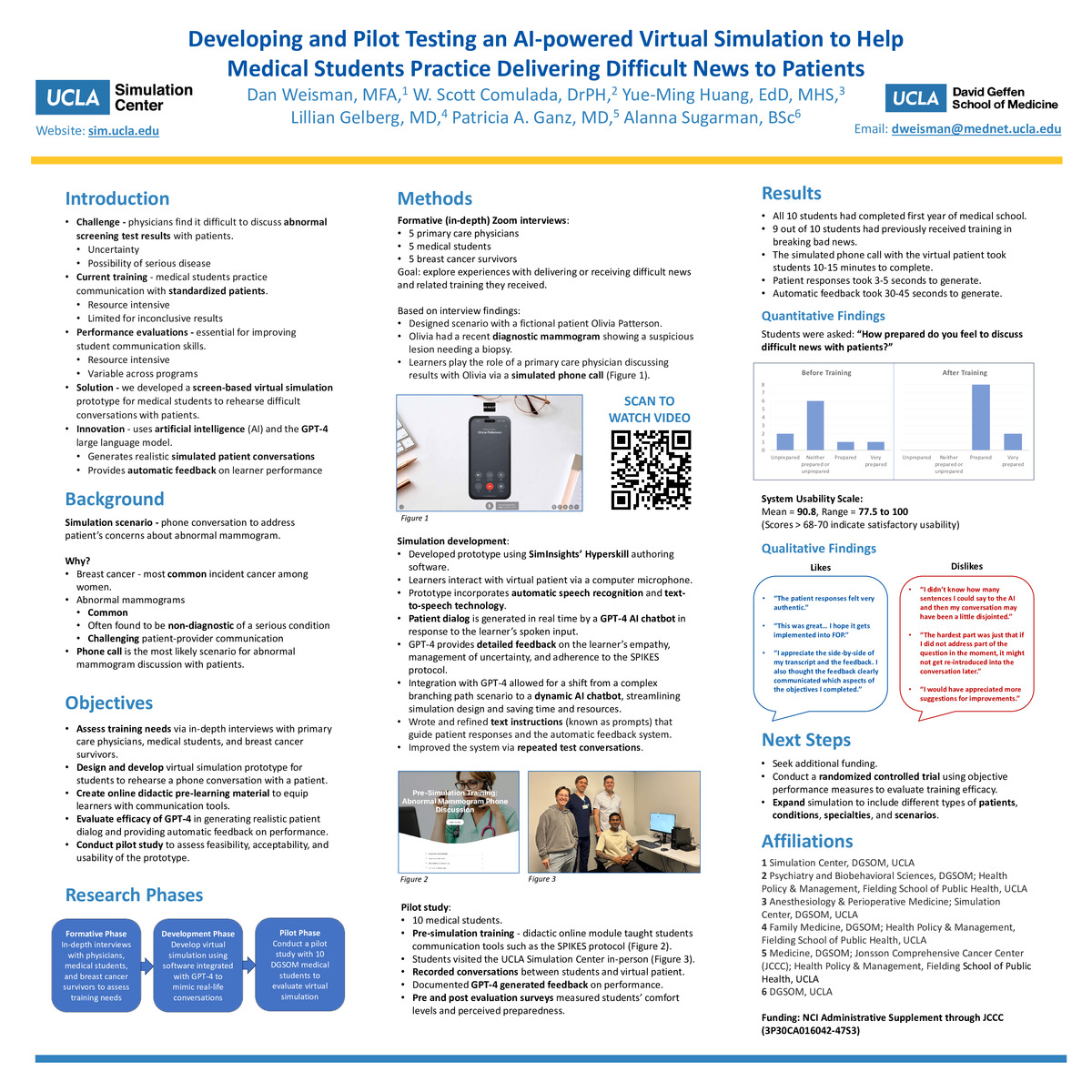
-
Author
Daniel Weisman -
Poster Title
Developing and Pilot Testing an AI-powered Virtual Simulation to Help Medical Students Practice Delivering Difficult News to Patients
-
Author(s)
Dan Weisman, MFA, W. Scott Comulada, DrPH, Yue-Ming Huang, EdD, MHS, Lillian Gelberg, MD, Patricia A. Ganz, MD, Alanna Sugarman, BSc
-
Contact Author Email
dweisman@mednet.ucla.edu
-
Poster Abstract
Discussing abnormal screening test results with patients can be challenging for physicians because the diagnostic uncertainty and possibility of disease can upset patients. Medical students receive communication training through practice with standardized patients, but standardized patients are resource intensive, and training is limited in discussing inconclusive results.
In the formative phase of our study, in-depth interviews were conducted with medical students, physicians, and breast cancer survivors (n=15). Based on needs identified from these interviews, we developed online learning modules and a virtual simulation prototype to allow learners to practice having a difficult phone conversation with a virtual simulated patient. We iteratively designed and developed our virtual simulation using software which incorporates OpenAI's GPT-4 language model, automated speech recognition, and text to speech technology to mimic real-life conversations. Online learning modules were developed as pre-learning material to prepare students for the virtual simulation. These modules teach the foundations of the SPIKES protocol for delivering difficult news and provide students with communication tools they can employ in the virtual simulation.
The virtual simulation takes 7-15 minutes to complete and reproduces a phone call with a patient to discuss abnormal mammogram results. The user speaks into a microphone to converse with the patient, and the patient responds convincingly using an AI-generated voice inflected with emotion. At the completion of the simulated phone conversation, the system provides experimental AI-generated feedback on the learner’s performance based on their adherence to the SPIKES protocol during the conversation.
For the next phase of our study, we will conduct a single-arm pilot test of the virtual simulation training module with 10 UCLA medical students to evaluate the module’s feasibility, acceptability, and usability.
-
Keywords
virtual simulation, communication, artificial intelligence, large language models, GPT-4
-
Poster PDF

